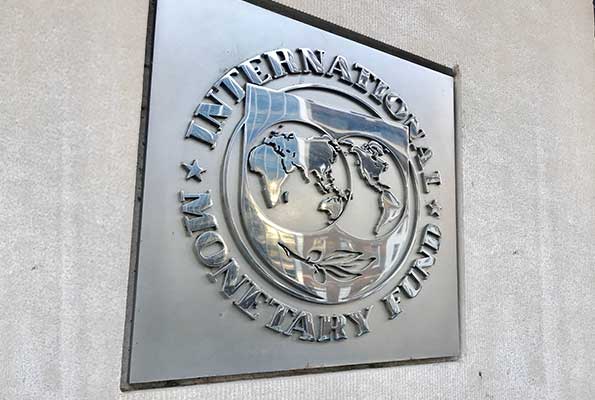The Middle East and North Africa (MENA) economies are expected to increase by 2.6% in 2023, as opposed to the 3.1% the International Monetary Fund (IMF) predicted earlier this year.
The IMF revised its prediction for the MENA economies in 2024 from 3.4% to 3.1% in its recent World Economic Outlook publication.
The fund also reaffirmed its prognosis for global growth in 2024 at 3% and increased its prediction for the growth of the world economy during the year 2023 from 2.8% to 3%.
According to the fund, raising interest rates by central banks to combat inflation still has a negative impact on economic activity because it increases the cost of borrowing, which dampens activity. The fund added that as a result, production losses are still significant compared to pre-COVID-19 expectations, particularly in the world’s poorest countries.
The fund projected a reduction in worldwide inflation from 8.7% in 2022 to 6.8% in 2023 and 5.2% in 2024.
It continued that maintaining financial stability while achieving a lasting decrease in inflation remained the top priority in the majority of economies, and that in order to do this, central banks should keep their attention on restoring price stability as well as bolstering financial supervision and risk management.
The IMF also anticipates a fall in world trade growth from 5.2% in 2022 to 2% in 2023 before a rebound to 3.7% in 2024.
The IMF claims that this decline is a result of changes in domestic service demand, the route of global demand, the consequences of the US dollar’s appreciation (which slows trade), and rising trade barriers.
Saudi Projection
The International Monetary Fund reduced its 2023 GDP growth prediction for Saudi Arabia to 1.9% in order to account for the effects of sustained oil production reduction.
The IMF downgraded its growth projection for the world’s top oil exporter from 3.1% in its regional outlook from May 2023 to 2.1% in June.
In contrast, private investment, including from the implementation of “giga-projects,” continues to sustain strong non-oil GDP growth, according to the IMF.
“The downgrade for Saudi Arabia for 2023 reflects production cutbacks agreed in April and June in line with an agreement through OPEC+,” the IMF stated in its report.
Due to strong oil prices that increased revenue and resulted in the kingdom’s first budget surplus in over ten years, the Saudi economy rose by 8.7% in 2022.
However, concerns about the state of the global macro economy and a hazy demand forecast have weighed on pricing, reducing growth expectations.
The biggest oil exporter in the world said earlier in July that it would extend an additional production output cut on top of a larger OPEC+ agreement. It also increased prices for the majority of its petroleum to Asian consumers in August for a second month.
The IMF predicted that the Middle East and Central Asia region’s total growth, which is set to fall to 2.5% in 2023 from 5.4% in 2022, will be affected by the larger-than-anticipated downturn in Saudi Arabia in 2023.
Egypt Forecast
According to the World Economic Outlook (WEO) report from the International Monetary Fund released on July 25th, the IMF has decreased its forecast for Egypt’s real gross domestic product (GDP) for the current fiscal year (FY) 2023/2024 from its earlier expectation of 5% to 4.1%.
Additionally, the IMF kept its forecast for Egyptian economic growth for the previous FY 2022–2023 at 3.7%.
The fund has however predicted 3% global economic growth for both 2023 and 2024 in its outlook.
The IMF stated that maintaining financial stability while attaining prolonged deflation “remains the priority in most economies.”
Therefore, it continued, “Central banks should keep their attention on reestablishing price stability and enhancing financial supervision and risk monitoring.”



